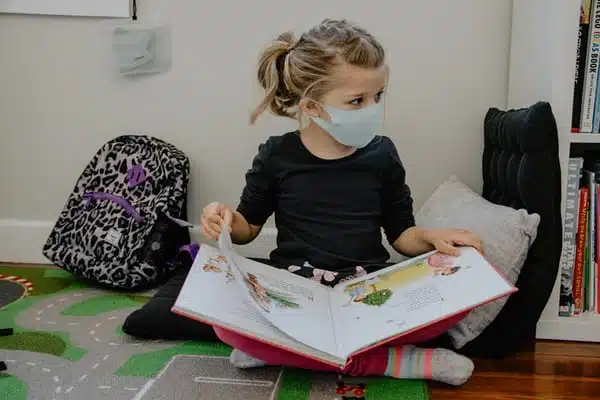Social work had to face a complete pendulum swing in social work practice during the COVID-19 pandemic and lockdowns.

Prior to COVID, online assessments or meetings were a complete rarity which had to be adequately justified. Yet overnight, as COVID-19 forced England into lockdown in March 2020, social workers still had vulnerable children and families that they had to carry out welfare checks on.
“Very rarely did social workers carry out an assessment online prior to COVID-19, in fact, if they felt this was needed, a strong justification had to be made in social work departments,” said Dave Wareham, Head of Services at WillisPalmer.
“Overnight, they had to upskill in technology that they were not used to using on a daily basis to ensure that they could contact vulnerable children and adults when they needed to and when face-to-face visits could not be carried out due to restrictions,” he added.
Thankfully, social workers are creative and innovative and so, during lockdown – despite operating in skeletal teams with various staff members isolating or shielding due to COVID, they applied their skills and expertise to carrying out online assessments or checks.
While online assessments can never replace face-to-face visits, this innovation was much needed in order to keep in touch with vulnerable children, adults and families when it was difficult to meet face-to-face.
Independent Social Worker Mary Cullen said: “Everyone pulled together to get things sorted.”
Social workers had no option but to step up to become the fifth emergency services during a difficult period and a worldwide pandemic. “It hit us overnight and we just had to get on with things and get through it somehow which is testament to how good and how creative social workers are.”
“Some families were living in poor housing conditions, infested with mice, where the children would stuff their socks into holes to stop the mice getting into their bedroom. Some women had escaped domestic violence and were living in a new area and trying to get their children registered at school and with a GP with no support network and no respite. A woman had moved areas and her child had to take two bus rides to get to school and therefore she needed to get him an Oyster travel card but this is all done online and she had no internet access and low literacy skills herself.”
“On top of this, during lockdown, parents were having to home-school their children which placed immense pressure on families, particularly when there was no internet access or the parents struggled with learning themselves. To see the shame among some parents when they felt they were unable to help children with their school-work was awful,” said Mary.
“I am very hands on anyway, but with many services unavailable, it was quicker and easier for me to help families fill out forms or contact housing departments than to refer them on. It was a very good insight as to what some parents go through trying to access different services and departments and there was a lot of learning,” added Mary.
“The greatest challenges were ensuring that families had what they needed, that there was enough food in the house, that children were safe and the parents were supported. Often families became very isolated, particularly if they had relied on their professional networks which were gone, and then their mental health deteriorates, whereas others had physical health needs,” she explained.

Adult services were the first to be hit by the impact of COVID-19. Social workers working with vulnerable adults worked hard to ensure safe hospital discharge throughout the pandemic, completing needs assessments for older people so that they could be provided with care in their own homes or in a residential setting, arranging a hot meal delivery service for those no longer able to attend day centres, luncheon clubs, or have meals prepared by family members. Family members who would ordinarily care for relatives were highly affected by the pandemic, with the lockdowns preventing or limiting their ability to do so, and social workers were therefore tasked with arranging alternative care provisions to ensure that the needs of vulnerable adults were effectively met.
The effects on children and families grew steadily as the lockdowns placed restrictions on everyone and created a pressure cooker environment in many families. Some people were already struggling with drug and alcohol addiction, poor mental health, and abusive relationships prior to the pandemic yet lockdown and increased pressures, a lack of support networks and pared back help services exacerbated those issues. Furthermore, the children living in those homes were at increased risk of emotional abuse, physical harm, and neglect due to the actions and behaviours they would be witnessing and exposed to, and there being no safe haven of school or other relatives.
COVID-19 impacted on families in the following ways:
- Children were not at school and missing being educated at school as well as their friends and fellow students
- Young people experienced isolation and a lack of social interaction
- Families were unable to see and utilise support networks of family and friends.
- Many families were living in cramped conditions in poor accommodation and no outdoor space.
- Parents – working or otherwise – had to become home educators and home school their children, placing immense pressure on families especially those with low levels of literacy and numeracy.
- Some families had little or no internet access making home learning and other support needs difficult.
- Early intervention services were pared back making it difficult for families struggling to access support aside from through social workers.
- Families struggling self-referred to children’s services asking for help and gaining a school place for their child as a ‘vulnerable child’.
- Increased anxiety around COVID-19 and health affected many people, with some experiencing bereavements.
- Children were cut off from extended families and their important support.
Sadly, many were incarcerated at home with their abusers. The usual referrers ie teachers at school were not seeing children during lockdown as while vulnerable children with a social worker were entitled to a school place, take up was low. As a result, it led Ofsted to warn that child abuse was going undetected.
The legacy that children’s social workers have received from COVID-19 is increasingly complex cases involving children who they were not able to identify during lockdown as children were ‘out of sight’. At best these children were missing out on regular meals and left unbathed in dirty clothes while left to fend for themselves. At worse, children were locked in a house day in, day out, for over a year with abusive parents or adults who were emotionally, physically or sexually abusing them – something many children and adults who have been abuse find difficult to disclose for a variety of reasons, including:
- Shame
- Embarrassment
- Fear of not being believed
- Stigma
- Fear of repercussions from the perpetrator and for the wider family
- Not realising that abuse is not ‘normal’ and does not happen in other households
- Not knowing who to tell
- Fear that they would be viewed differently
Referrals have gone down with teachers not referring and in March statistics from the Department for Education found that the number of referrals to children’s services was 11% lower than in previous years. However local authorities reported an increase in the complexity of cases they are receiving.
“A common and consistent theme has been an increase in cases involving suspected domestic abuse. In later survey waves (9-22; September 2020 – March 2021) a growing number of local authorities also described an increase in the complexity of the cases that they are seeing,” said the report.
As a result, social workers across the board are now focusing their efforts on identifying children who were placed at risk during the various lockdowns and ensuring that adults made more vulnerable during the pandemic have the support and assistance they need.
It is therefore essential that this vital work aimed at piecing families and communities back together is recognised and celebrated.
To back our #Respect4SocialWork campaign visit our website.


